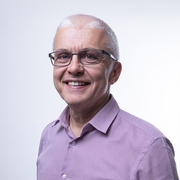
$13.7 million for heart research in Australia
Heart Foundation funds groundbreaking heart research
The Heart Foundation is thrilled to announce the awarding of $13.7 million to support 66 new, pioneering research projects across Australia. This vital funding will leverage the nation's scientific expertise to help save more lives from cardiovascular disease (CVD). Coronary heart disease remains the leading cause of death in Australia — accounting for over 17,000 deaths annually.
Focus on cutting-edge research
This year's funded projects tackle some of CVD's most challenging mysteries. They champion advancements in the prevention, treatment, and management of heart disease, stroke, and blood vessel disease. The ultimate goal is to improve lives for people in Australia of all ages and backgrounds.
Research recipients include:
- University of Sydney researcher, Dr Alyse Davies, who has been awarded a First Nations CVD Grant to tackle heart disease in First Nations communities. Her project, titled "Strait from the Heart," will focus on improving diet and physical activity habits to reduce CVD risk factors. The 12-month program will be tailored to the unique needs and cultural preferences of First Nations people in Queensland. By working closely with local communities, Dr Davies hopes to make a significant impact on heart health and create a healthier future for First Nations people in Australia.
- Baker Heart and Diabetes Institute’s Dr Rebecca Harper who is conducting research into the use of cardiac regenerative medicine. Dr Harper’s project will test a novel strategy to replace the scar tissue that forms after a myocardial infarction (heart attack), with heart muscle cells. The research could lead to breakthroughs in the care of people who have had heart attacks.
- The University of Queensland’s Dr Mark Allenby, whose proposal aims to establish a diagnostic model for transplant-associated thrombotic microangiopathy (TA-TMA), a life-threatening condition that can occur after stem cell or solid organ transplants. TA-TMA is difficult to diagnose and treat, leading to high mortality rates. The proposed model would use special cell culture techniques to predict patient risk, optimise transplant management, and evaluate potential treatments. The research has broad applications since this blood vessel dysfunction is associated with other serious conditions like COVID-19, Buerger disease, and traumatic brain injury.
- Dr Lee Nedkoff at the University of Western Australia, whose research aims to improve CVD surveillance in Australia by developing new monitoring methods, including algorithms and standardised approaches for conditions like chronic coronary disease and cardiomyopathies (conditions affecting the heart muscle). Her work also aims to develop a comprehensive system for monitoring CVD conditions, with a focus on equity and accessibility.
- University of Tasmania’s Professor Seana Gall, whose research is focussed on the estimated 80% of cardiovascular events with known, modifiable risk factors. Professor Gall’s research will advance this knowledge base by conducting observational and interventional epidemiological studies to understand how we can enhance the primary and secondary prevention of cardiovascular disease.
A full list of research projects is available online on our website here.
Additional funding for top researchers
The Heart Foundation is also proud to announce the recipients of its prestigious innovation awards, recognising the most outstanding and groundbreaking research in CVD. These talented researchers have been awarded additional funding on top of their funded projects, showcasing their innovative approaches.
The Shirley E Freeman Award ($20,000) honours the legacy of Dr Shirley E Freeman, a pioneer in cardiovascular research. This year's recipients are:
- Dr Elizabeth Paratz, St Vincent’s Institute of Medical Research: Her work on the CODEX registry, a nationwide database on cardiac arrest, aims to shed light on sudden cardiac death.
- Dr Amy Baxter, La Trobe University: Her research focuses on boosting efferocytosis (the process of removing dead or dying cells) to promote tissue repair in vascular diseases.
The Paul Korner Innovation Award ($20,000) commemorates the invaluable contributions of Professor Paul Korner to cardiovascular research. This year's awardees are:
- Dr Ashley Meakin, University of South Australia: His research explores the hormonal communication between mother, placenta and baby, to reduce CVD risk in high-risk pregnancies.
- Dr Jarmon Lees, St Vincent's Institute of Medical Research: His work focuses on developing new therapies for Friedreich ataxia, a rare inherited disease that can affect the heart muscle.
Finally, this year the Ross Hohnen Award for Research Excellence ($10,000) recognised the highest-ranked one-year Vanguard Grant application. This year's recipient is:
- Associate Professor Jonathon Fanning, The University of Queensland: His research aims to evaluate surgery-related heart injury and develop strategies to limit damage.
A legacy of supporting cardiovascular research
Heart Foundation CEO David Lloyd emphasised the importance of donors when it came to funding research.

The generosity of people in Australia over the past year has ensured we can continue to support vital cardiovascular research.
David Lloyd, CEO
Heart Foundation
"These 66 innovative projects build on our strong legacy of supporting cardiovascular research across the entire spectrum, from basic biology to clinical research and public health initiatives."
“Heart disease remains a devastating health issue, claiming the lives of one person every 18 minutes. Researchers play a crucial role in working to turn this statistic around. Their work helps us understand the causes, develop more effective treatments, and improve prevention strategies.”
“By uncovering the underlying mechanisms of heart disease and identifying risk factors, researchers contribute to the development of innovative therapies and public health interventions aimed at reducing the burden of this disease.”
Impact of cardiovascular disease in Australia
More than four million people in Australia currently live with cardiovascular disease. It claims nearly 45,000 lives annually, with coronary heart disease remaining the nation’s leading cause of death, responsible for more than 18,600 deaths each year.
You might also be interested in...

Research Grant Recipients 2024
The Heart Foundation is proud to announce the grant recipients awarded in 2024, commencing research projects in 2025.

Current research directory
Search our current researchers and the ground breaking research being undertaken.

The Global Cardiovascular Research Funders Forum
Founded in 2018, the Global Cardiovascular Research Funders Forum (GCRFF) is an international partnership of major cardiovascular research funders.
Last updated29 October 2024